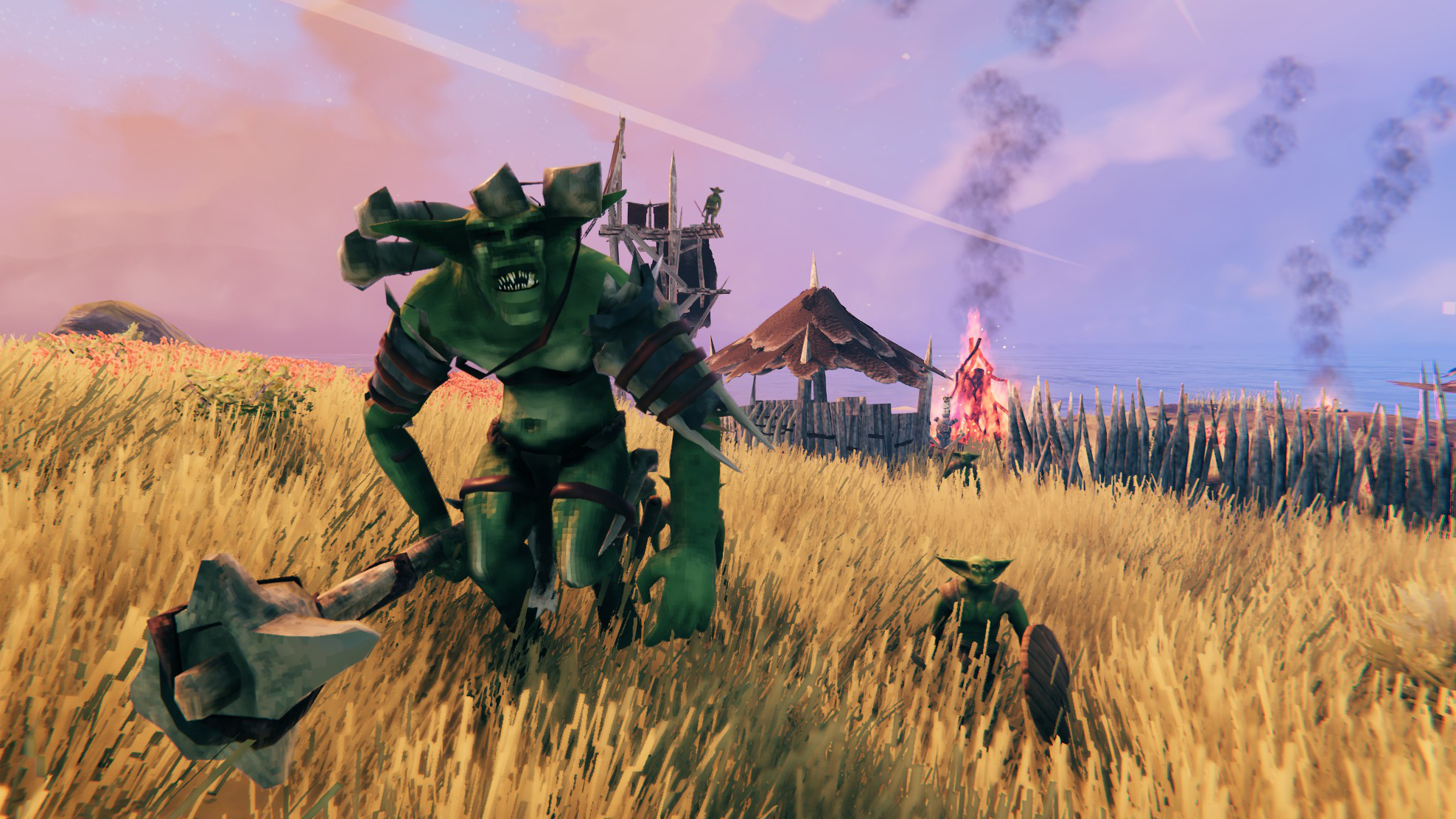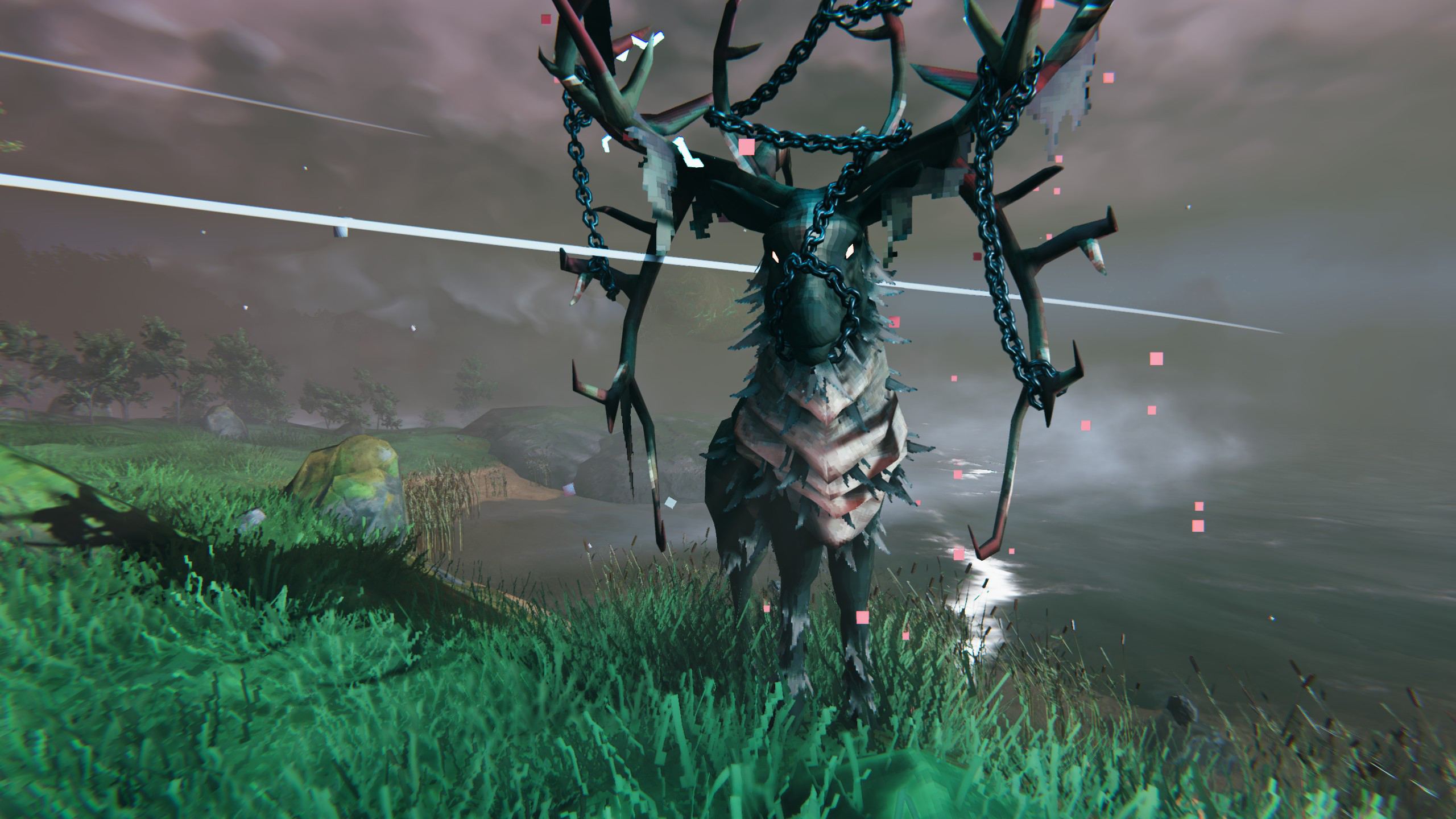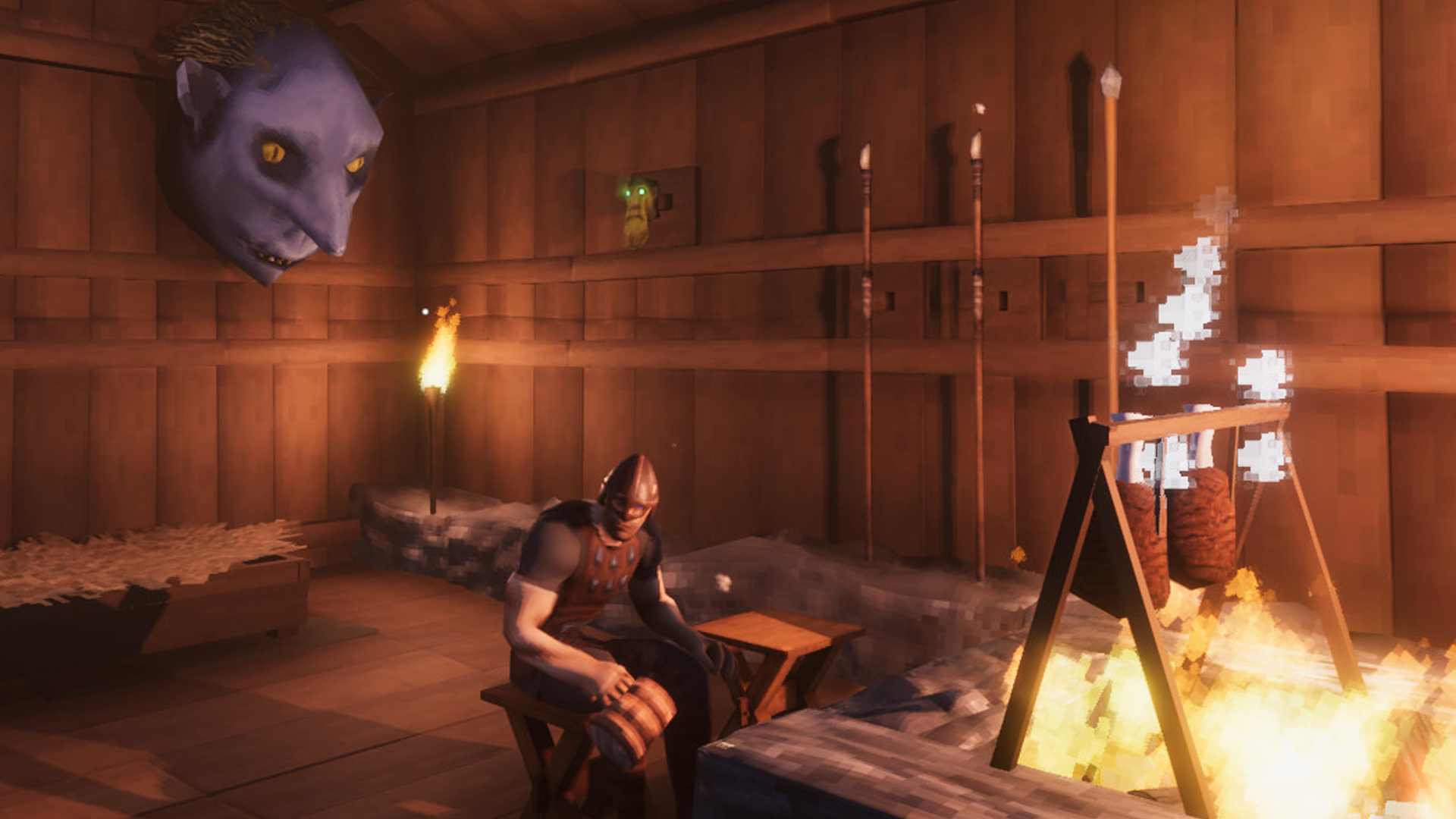Valheim developer says Zelda and Skyrim were bigger influences than survival games
We chatted with co-founder of Iron Gate Studios, Henrik Törnqvist, about the hit co-op Viking survival game.

There hasn't been an Early Access survival game that's taken off like Valheim since… well, probably ever. With over 2 million copies sold in just under two weeks, and now boasting the 10th highest concurrent player count on Steam ever, there are now more virtual Vikings playing Valheim than there were actual Vikings at their peak in the 1300s.
For me personally, Valheim has reignited my love of survival games, so when I got to speak with Henrik Törnqvist, co-founder of developer Iron Gate Studios, I asked him if the Iron Gate team (which is just five people) play a lot of survival games, and draw inspiration from them.
"No, not really," said Törnqvist. In fact, he told me, Valheim is more inspired by singleplayer RPGs like The Legend of Zelda and Skyrim than it is by other survival games.
"We wanted to have more of a feeling of an old school, singleplayer adventure game, kind of like the older Zeldas, I guess," said Törnqvist. "Where you get new equipment from defeating the bosses. And we thought it would, or we hoped that it would, mesh well with the survival aspects of a game. And, yeah, it seems it worked out."
In Valheim, bosses control the gateway to important avenues of progress. The first boss, Eikthyr, drops antlers when he dies, which is the only way players can craft their first pickaxe used for mining tin and copper. The second boss in Valheim, The Elder, must be defeated to gain an item that allows players to start collecting iron. Finding and battling these bosses in the big open world gives Valheim an almost campaign-like feel, like making your way to battle Zelda bosses like Dodongo or Gohma.

Another reason so many people are getting hooked on Valheim is that it doesn't quite follow the survival game blueprint we're used to. Certain systems are much more forgiving than they typically are in survival games. For instance, repairing weapons, tools, and armor has no resource cost attached, and if you build something you can tear it down for a full refund of the resources you used to construct it, which is rare in the genre.
The forgiveness of those systems goes back to Valheim's roots, which sprang from CEO of Iron Gate, Richard Svensson, who had been working on a "much more complex" open world simulation game. "[Richard] soon came to the conclusion that an open world simulation that simulates things for no other reason than to simulate them is pretty redundant," said Törnqvist. "So, that's when he started developing Valheim, which he wanted to be much more gameplay focused, where the simulation helps the gameplay experience of the player, rather than hinders it."
The biggest gaming news, reviews and hardware deals
Keep up to date with the most important stories and the best deals, as picked by the PC Gamer team.

Anyone who has ever had to stop exploring or building their fort because they were about to starve to death in a survival game has certainly felt hindered by the simulation. But while cooking and eating are incredibly important in Valheim, you won't die of hunger or thirst.
"The simulations shouldn't stand in the way of gameplay experience," Törnqvist said. "So, that was a decision we made early to simply not have... the food should help the player perform better, but it shouldn't be... it shouldn't kill you if you don't eat. It becomes more of a reward mechanism, I guess you could say."
With those forgiving survival systems, combined with open world exploration and boss fights, Valheim often feels more like an RPG than a survival game. And now we know why.
- Valheim iron: How to get it
- Valheim dedicated server: How to get one working
- Valheim boss: Summon and defeat them all

Chris started playing PC games in the 1980s, started writing about them in the early 2000s, and (finally) started getting paid to write about them in the late 2000s. Following a few years as a regular freelancer, PC Gamer hired him in 2014, probably so he'd stop emailing them asking for more work. Chris has a love-hate relationship with survival games and an unhealthy fascination with the inner lives of NPCs. He's also a fan of offbeat simulation games, mods, and ignoring storylines in RPGs so he can make up his own.

